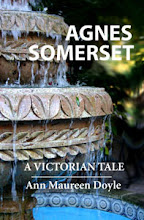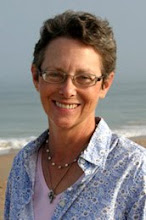 I doubt you have ever heard Hannah Breece's name mentioned--a schoolteacher from Pennsylvania who, after some 20 years of teaching, felt a call to educate the native children (and their parents) in the great frontier of Alaska. I stumbled upon the story of this woman, written from her memoirs, in a used book store. The book only got published thanks to the great efforts of Hannah's literary niece, Jane Jacobs, who put her aunt's story into good order and added her own research about the time onto the end of it.
I doubt you have ever heard Hannah Breece's name mentioned--a schoolteacher from Pennsylvania who, after some 20 years of teaching, felt a call to educate the native children (and their parents) in the great frontier of Alaska. I stumbled upon the story of this woman, written from her memoirs, in a used book store. The book only got published thanks to the great efforts of Hannah's literary niece, Jane Jacobs, who put her aunt's story into good order and added her own research about the time onto the end of it.It was 1904 when Washington sent Hannah to an Alaskan village on her first assignment. This was a wild land of small settlements separated by great distances; and peopled by natives, Russians, and a few enterprising white folks from the States. Laws were only sometimes enforced, with much depending on the integrity of the local administrator. Hannah was 45 years old when she arrived to teach school at Afognak. She spent the next 18 years setting up schools in several villages, always improving on what she found, applying her caring but no-nonsense approach to teaching everything from reading to proper housekeeping.
Her adventures included falling through the ice, being beset one Sunday morning by a hundred howling dogsled dogs (which she fended off single handed until reaching the safety of the closest building), walking all day through rough terrain to reach her destination (at great cost to her feet), and suffering the scorn of the local whites after testifying at a hearing against one of their own for mistreatment of the natives and other crimes.
To say Hannah was bold, was determined, seems an understatement. Reading her story was a tonic to me, one who suffers too often from tentativeness and second-guessing. Hannah could quickly size up what needed doing and do it. She assigned the villagers jobs to help make the broken-down schoolrooms usable, taught the natives how to plant vegetable gardens, demonstrated that bathing a baby would not kill it, and overall achieved remarkable results. She did not bite her tongue. Hannah told one native young man, who repeatedly came to school dirty and disheveled, that he could not attend one more day of class unless he cleaned himself up. (Imagine saying that today!) The next day, and thereafter, he arrived washed and combed.
Hannah endured not only the grueling hardships of 40-degree-below temperatures, 24-hour winter darkness, and bear attacks, but repeated incompetence and indifference from many of her superiors. Nevertheless, she complained not once about the latter in her memoirs, and simply persevered in her efforts to procure needed supplies and simple justice for the people under her care.
I would like to see a statue built to Hannah Breece. Lacking that, I will erect a small one in my mind and look to it for inspiration, as an example of what one clear-eyed woman can do.
_______
A Schoolteacher in Old Alaska: The Story of Hannah Breece, edited by Jane Jacobs, Vintage Books, 1995.



